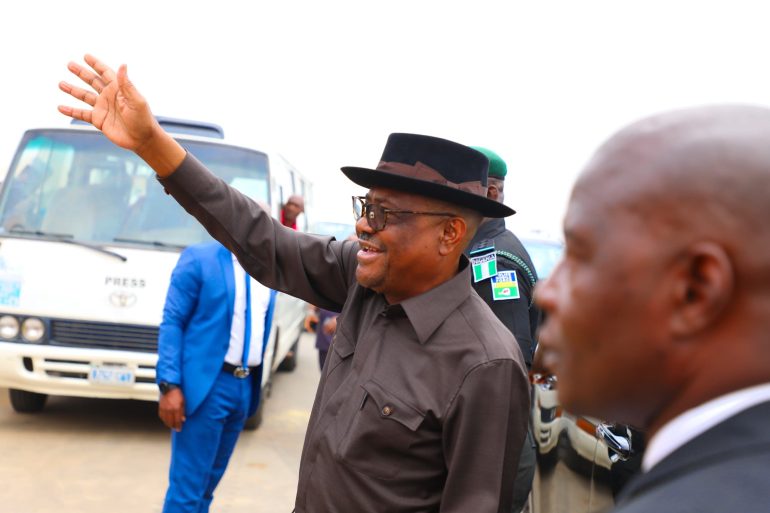Listeners:
Top listeners:
-
play_arrow
104.9FM Best rock music demo
-
play_arrow
Demo Radio Nr.1 For New Music And All The Hits!
-
play_arrow
Demo Radio Techno Top Music Radio
-
 play_arrow
play_arrow
Police Commissioner Launches Weapon and Riot Control Training for FCT Officers Democracy Radio
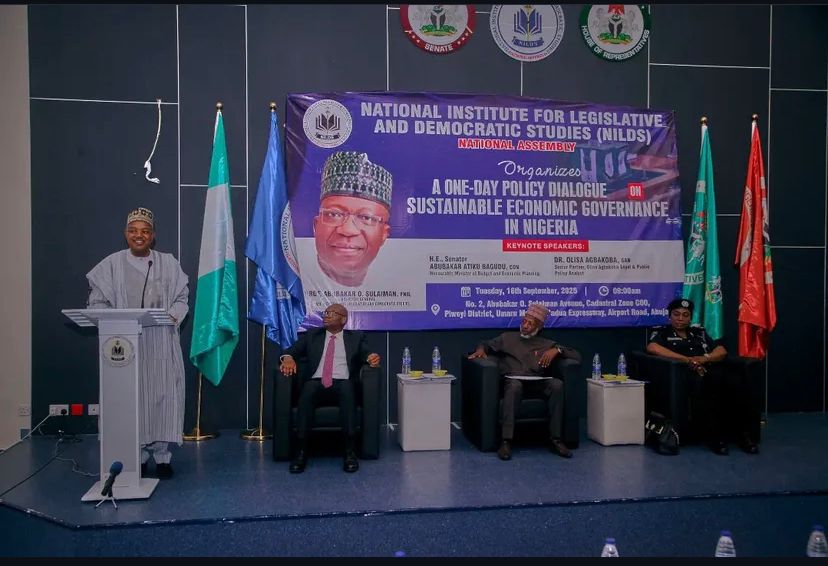
By Sofiat Adenekan-Abdul
Legal experts, economists, and labour leaders have called for urgent, integrated reforms to rescue Nigeria from a deepening crisis of poverty, institutional weakness, and economic imbalance.
The call was made at a one-day policy dialogue on sustainable economic governance in Nigeria, organised by the National Institute for Legislative and Democratic Studies (NILDS) in Abuja, on Tuesday.
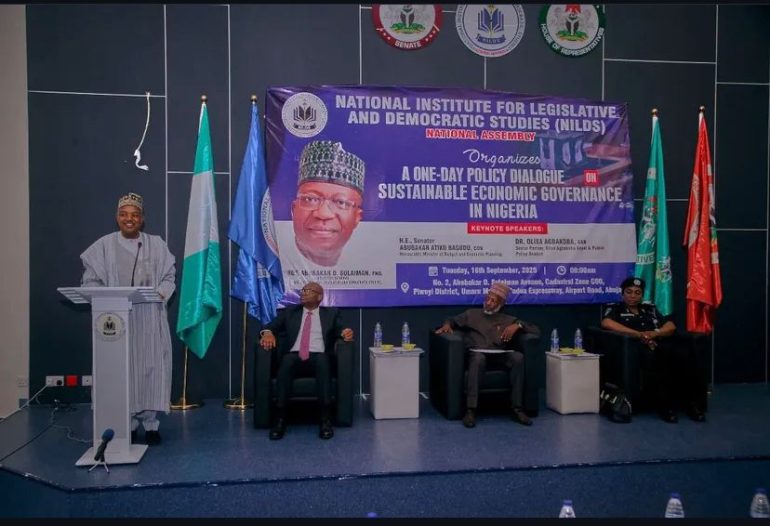
Delivering a keynote address on behalf of Prominent legal and public policy expert, Dr. Olisa Agbakoba (SAN), represented by Barrister Collins Okeke, described Nigeria as a nation of contradictions — rich in resources, yet poor in outcomes.
He said the country needs a “development nexus” — a harmonised approach where law, politics, and economics work together.
“We have 133 million people living in multi-dimensional poverty. This is not due to a lack of resources — it’s a breakdown in how we think and act on development,” he said.
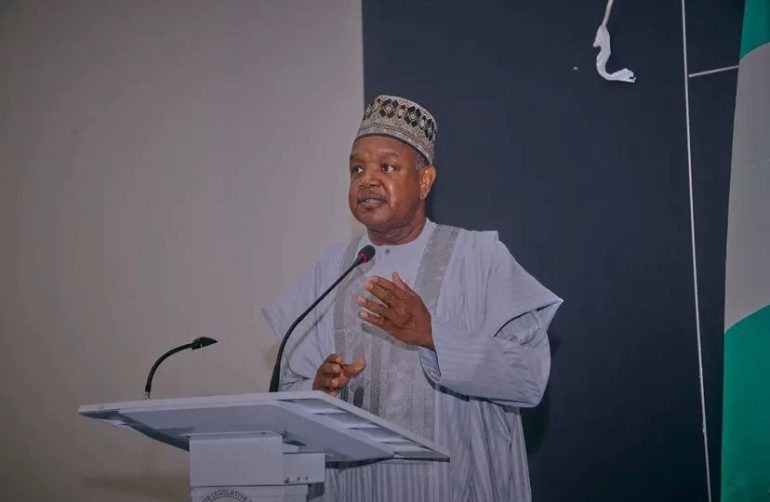
Agbakoba criticised the state of Nigeria’s electricity sector, pointing out that the country still produces just 4,000 megawatts for over 220 million people. While he praised the National Assembly for amending the constitution to decentralise power generation, he stressed that unresolved legal ambiguities between federal and state roles remain a barrier.
He also called for the creation of an Office for Legal Reform and Economy, a comprehensive audit of colonial-era laws, and the full justiciability of Chapter II of the Constitution, which outlines the state’s responsibilities to its citizens.
He urged reforms to the Land Use Act and greater use of sector-specific courts to resolve commercial disputes quickly.
Representing the Director-General NILDS Professor, Abubakar Suleiman, Dr. Danwaka Shuaibu outlined the Federal Government’s efforts under President Bola Tinubu to stabilise the economy.
These include subsidy removal, forex reforms, and the establishment of the Presidential Economic Coordination Council and Economic Management Team Emergency Task Force.
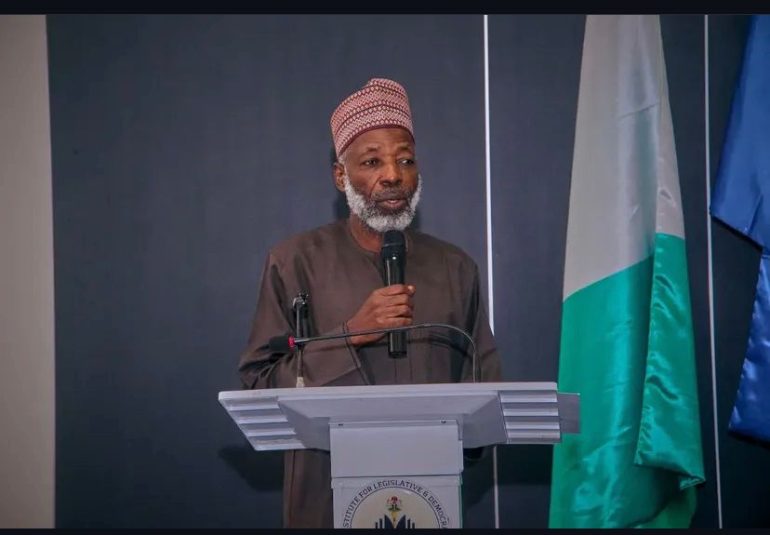
Dr. Shuaibu said reforms have improved investor confidence and restored Nigeria’s access to international capital markets.
However, he warned that serious socio-economic challenges persist, and that stronger legislative-executive cooperation is critical to ensure economic governance that is transparent, inclusive, and people-focused.
Also, the Nigeria Labour Congress (NLC) issued more urgent warning. Comrade Chris Onyeka, NLC’s Assistant General Secretary, said Nigeria is “boxed into a debt trap,” with the government borrowing just to service existing loans. He decried the removal of fuel subsidies as a move that punishes the poor while rewarding the elite.
“The economy is being run for the few, not the many. When you sign a wage agreement one day and hike fuel prices the next, you wipe out the gains for workers. That is not sustainable,” Onyeka said.
The policy dialogue ended with a consensus that Nigeria must abandon fragmented, elite-driven policy frameworks. Speakers urged policymakers to put citizens — not political interests — at the centre of national economic planning. They called on the National Assembly and Executive to lead a bold, unified reform agenda that delivers real development, not just rhetoric.
Written by: Toyeebaht Aremu
Similar posts
Wike, Labour Call Off FCTA Workers’ Strike
By Sofiat Adenekan-Abdul The Minister of the Federal Capital Territory (FCT), Nyesom Wike, and organised labour have reached an agreement to end the strike by Federal Capital Territory Administration (FCTA) workers. The resolution followed a marathon meeting convened by the Chairman of the Senate Committee on FCT, Senator Mohammed Bomoi, […]
Copyright Democracy Radio -2024

